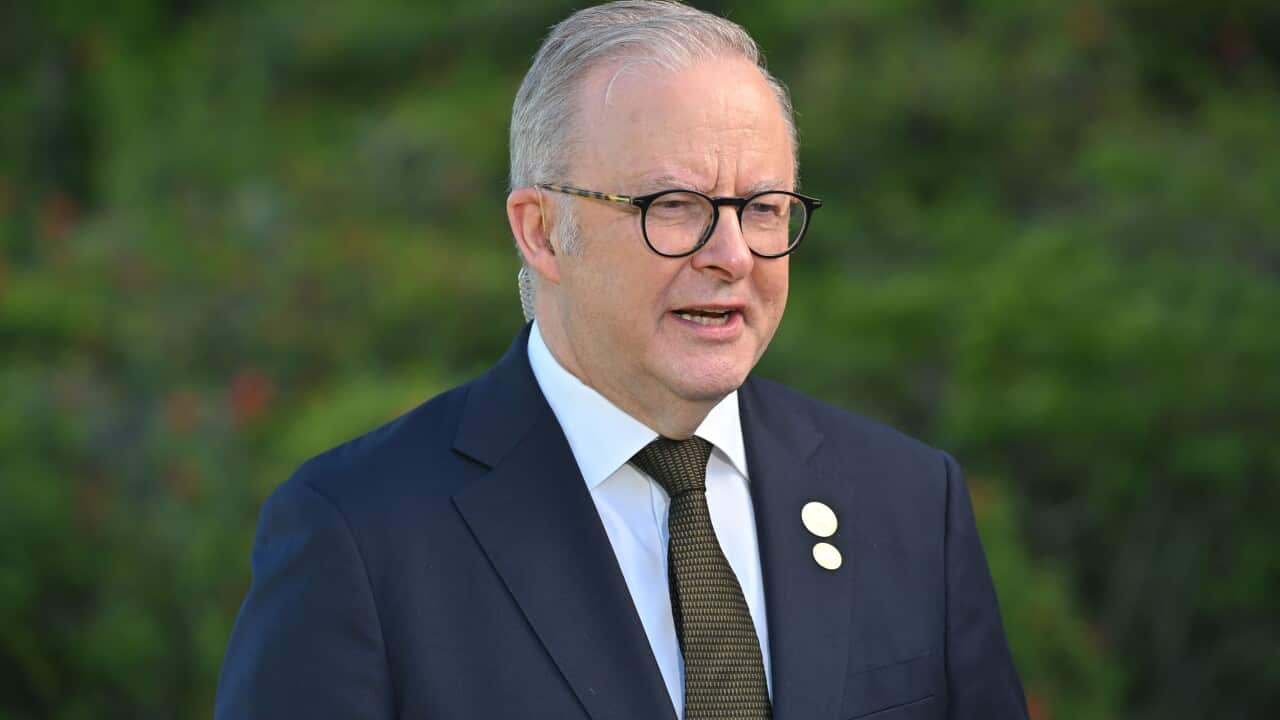Prime Minister Anthony Albanese will leave Papua New Guinea (PNG) without finalising a high-level defence pact between the two nations after PNG's cabinet couldn't sign off on the landmark agreement in time.
The defence treaty, known as the Pukpuk Treaty and named after the pidgin word for crocodile, between Australia and Papua New Guinea was not signed as planned on Wednesday.
The treaty would elevate the countries' relationship to an alliance, allow PNG nationals to serve in Australia's defence force, and would impose mutual support obligations if either country comes under attack.
PNG Prime Minister James Marape announced that a communique laying out the wording of the pact was signed in lieu and asserted to reporters that Australia and PNG are "security partners".
Marape said he is still in the process of delivering the treaty to his cabinet and thanked Albanese for being in Port Moresby.
Albanese referred to Australia and PNG as the "truest of friends" and congratulated the country on the anniversary of its independence.
Marape was optimistic the treaty, which was initiated by PNG, would be signed in coming weeks and said it would take the relationship between the two countries to a "new level".
"We will go through our respective cabinet processes and expect to finalise the signing of the treaty," he said.
"Australia and PNG will keep walking together, side by side, step by step."
Asked if the failure to sign the treaty on Wednesday was "embarrassing" by a reporter, Albanese said he respects the processes of the PNG cabinet and they've had a "busy week".
Marape said increasing PNG's defence capacity was crucial to him.
"I go to sleep every night worried if someone invades my country, what is my defence for my country?" he said.
Albanese told reporters on Tuesday that the PNG cabinet met on Monday night to give final approval but didn't have a quorum (the minimum of people to make the meeting valid) because some ministers were back in their constituencies for independence celebrations.
But he expected his counterpart James Marape to sort it out quickly by ushering the process through his cabinet virtually.
Celebrations to mark PNG's independence from Australia wrapped up on Tuesday night with a mass gathering at Port Moresby's Sir John Guise Stadium.
Support for the Pukpuk Treaty
In Canberra, the pact was backed by Opposition leader Sussan Ley.
"The new treaty being finalised by Papua New Guinea and Australia will bring a transformation of our mutual partnership — providing the basis of deeper ties for the next 50 years," she said.
Albanese said the idea that PNG would be attacked and Australia would sit back and watch is "something that wouldn't happen" given their history and close ties.
Marape has said he had "a moral obligation to build my military to a level that I can have the capacity to defend Papua New Guinea, every child".
The landmark agreement would also enable PNG nationals to serve in Australia's defence force with the same pay as other members and start a pathway to citizenship.
PNG defence minister Billy Joseph said on Monday the deal was a "mutual defence treaty" that would have the nations working together to defend each other's territories.
It is likely the deal will be seen with a more cynical eye across the Pacific, with many nations not well disposed to the militarisation of the region.
Albanese's deal-making in the Pacific has been a central tenet of his government's foreign policy, including a landmark climate pact with Tuvalu and a migrant-dumping agreement with Nauru.
He is also pursuing a security treaty with Fiji, one of just three Pacific nations to have a defence force, along with PNG and Tonga.
In recent years, Australia has struggled to carve out security pacts with two other Melanesian nations — the Solomon Islands and Vanuatu — which maintain warmer ties with China.
The Greens have also raised concerns over the Pukpuk Treaty, including the degree of integration between the two forces.
"What, for example, would Australia's role be if there is a return to conflict in [the autonomous island region of] Bougainville?" defence spokesperson David Shoebridge asked.
"Does it mean they follow us into a US war, or is it about military bases?
"Absorbing PNG's military into the Australian Defence Force is a very questionable way to celebrate the 50th anniversary of independence."
As a gift to mark its golden jubilee, Australia will help PNG build a new ministerial wing at its parliament.
For the latest from SBS News, download our app and subscribe to our newsletter.

